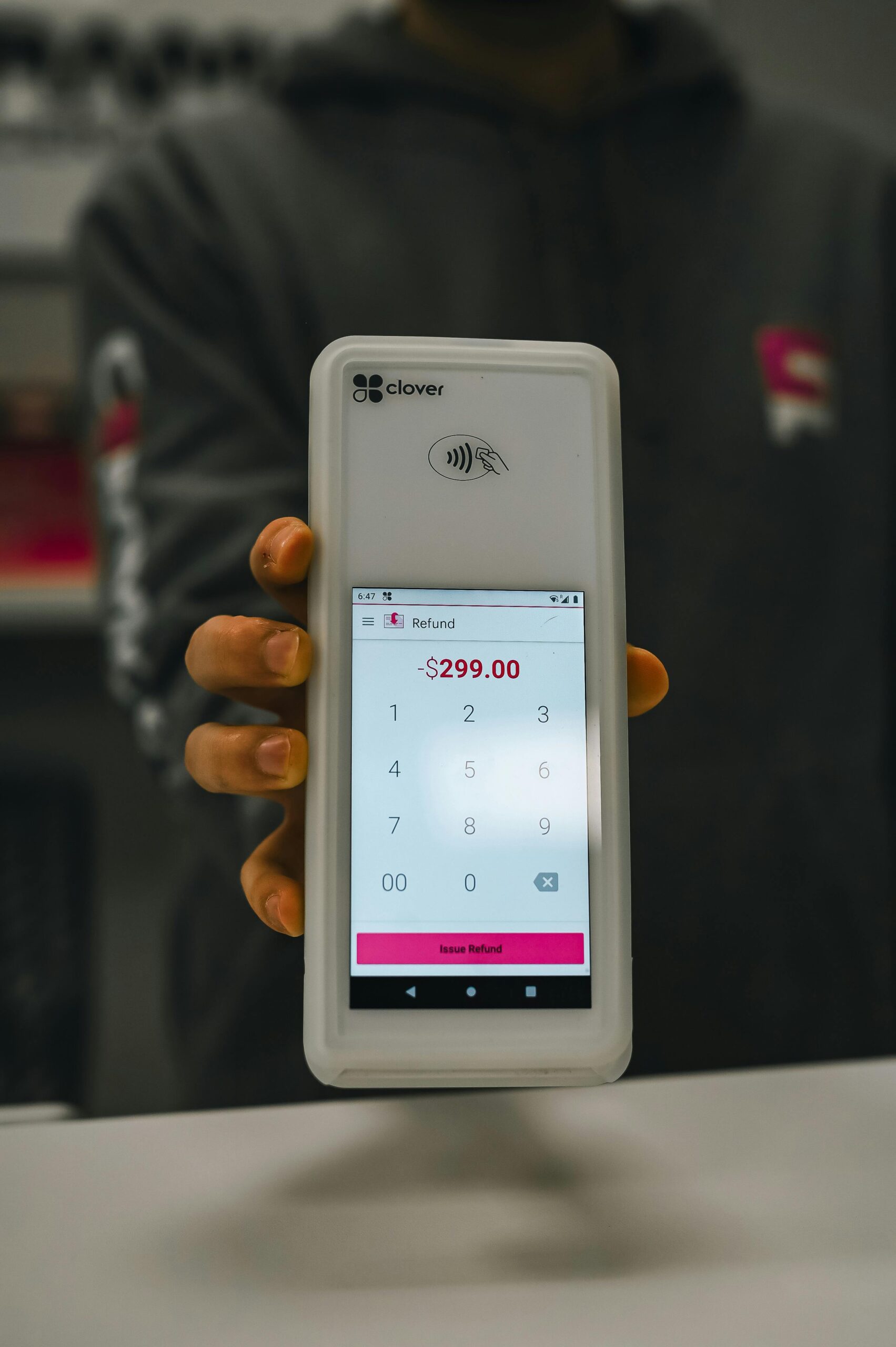In today’s fast-paced business environment, small businesses are constantly seeking ways to streamline their operations and boost efficiency. One powerful tool that has revolutionized the way small businesses operate is Point of Sale (POS) software. This innovative technology goes far beyond simple transaction processing, offering a wide range of features that can significantly enhance productivity and drive growth. In this article, we’ll explore seven powerful ways POS software can skyrocket small business efficiency.
POS Software
1. Streamlined Sales Processes
POS software dramatically simplifies the sales process, allowing businesses to complete transactions quickly and accurately. With features like barcode scanning, touchscreen interfaces, and integrated payment processing, employees can serve customers faster, reducing wait times and improving overall customer satisfaction. This efficiency not only leads to happier customers but also enables businesses to handle higher sales volumes without increasing staff.
2. Inventory Management Made Easy

One of the most time-consuming tasks for small businesses is managing inventory. POS systems offer real-time inventory tracking, automatically updating stock levels with each sale. This feature eliminates the need for manual stock counts and helps prevent stockouts or overstock situations. Many POS systems can also generate low-stock alerts and automate reordering processes, ensuring that popular items are always available while minimizing excess inventory costs. You can check our software Lesstock here.
3. Data-Driven Decision Making
Modern POS software provides comprehensive reporting and analytics tools that give small business owners valuable insights into their operations. By analyzing sales data, customer preferences, and inventory turnover rates, businesses can make informed decisions about pricing, promotions, and product offerings. This data-driven approach allows for more strategic planning and helps identify areas for improvement or expansion.
4. Enhanced Customer Relationship Management
Many POS systems include built-in customer relationship management (CRM) features. These tools allow businesses to collect and analyze customer data, track purchase history, and implement loyalty programs. By leveraging this information, small businesses can personalize their marketing efforts, offer targeted promotions, and improve customer retention. The ability to provide personalized service and rewards can significantly boost customer loyalty and repeat business.
5. Multi-Channel Integration
As small businesses expand their presence across various sales channels, POS software can serve as a central hub for managing operations. Many systems offer seamless integration with e-commerce platforms, mobile apps, and social media sales channels. This integration ensures consistent inventory tracking, pricing, and customer data across all platforms, making it easier to manage an omnichannel business strategy without duplicating efforts or risking errors.
6. Employee Management and Performance Tracking
POS systems often include features for employee management, such as time tracking, shift scheduling, and performance monitoring. These tools help small business owners optimize staffing levels, reduce labor costs, and identify top-performing employees. Additionally, many POS systems offer role-based access controls, ensuring that sensitive data and functions are only accessible to authorized personnel, thereby enhancing security and accountability.
7. Simplified Accounting and Financial Management
Integration with accounting software is another significant advantage of modern POS systems. By automatically syncing sales data, tax information, and expenses with accounting platforms, POS software dramatically reduces the time and effort required for bookkeeping. This integration minimizes errors associated with manual data entry and provides real-time financial insights, making it easier for small business owners to manage cash flow, prepare for tax season, and make informed financial decisions.
Implementing POS Software in Your Small Business
While the benefits of POS software are clear, implementing a new system can seem daunting. Here are some steps to help small businesses successfully adopt POS software:
- Assess your needs: Consider your business type, sales volume, and specific requirements to choose the right POS system.
- Research options: Compare different POS providers, reading reviews and seeking recommendations from similar businesses.
- Plan for training: Ensure that you and your staff are adequately trained on the new system to maximize its benefits.
- Start with essential features: Begin by implementing core functionalities, then gradually introduce more advanced features as your team becomes comfortable with the system.
- Regularly review and optimize: Continuously monitor the system’s performance and make adjustments as needed to ensure it continues to meet your evolving business needs.
Conclusion
POS software has become an indispensable tool for small businesses looking to enhance their efficiency and competitiveness. By streamlining sales processes, improving inventory management, enabling data-driven decision-making, enhancing customer relationships, integrating multi-channel operations, optimizing employee management, and simplifying financial tasks, POS systems offer a comprehensive solution for boosting small business productivity. As technology continues to evolve, embracing these powerful tools will be crucial for small businesses aiming to thrive in an increasingly digital marketplace.
Read more: 5 Genius Ways to Improve ERP Financials in Your Shop
Frequently Asked Questions (FAQ)
What is POS software?
POS (Point of Sale) software is a digital system that processes sales transactions, manages inventory, and often includes additional features like customer management, reporting, and accounting integrations.
How much does POS software typically cost?
The cost of POS software varies widely depending on features, scale, and whether it’s cloud-based or on-premise. Prices can range from $50 to $300+ per month for cloud-based systems, with additional costs for hardware.
Can POS software work offline?
Many modern POS systems offer offline functionality, allowing businesses to continue processing sales during internet outages. Data is typically synced once the connection is restored.
Is POS software secure?
Reputable POS software providers implement strong security measures, including encryption and compliance with payment industry standards. However, businesses should also follow best practices for data security.
Can I use my existing hardware with new POS software?
It depends on the POS system and your current hardware. Many cloud-based POS systems can work with a variety of devices, while others may require specific hardware.
How long does it take to implement a new POS system?
Implementation time can vary from a few days to several weeks, depending on the complexity of the system, the size of your business, and the level of customization required.
Can POS software integrate with my e-commerce platform?
Many modern POS systems offer integrations with popular e-commerce platforms, allowing for seamless management of in-store and online sales.


Leave a Reply